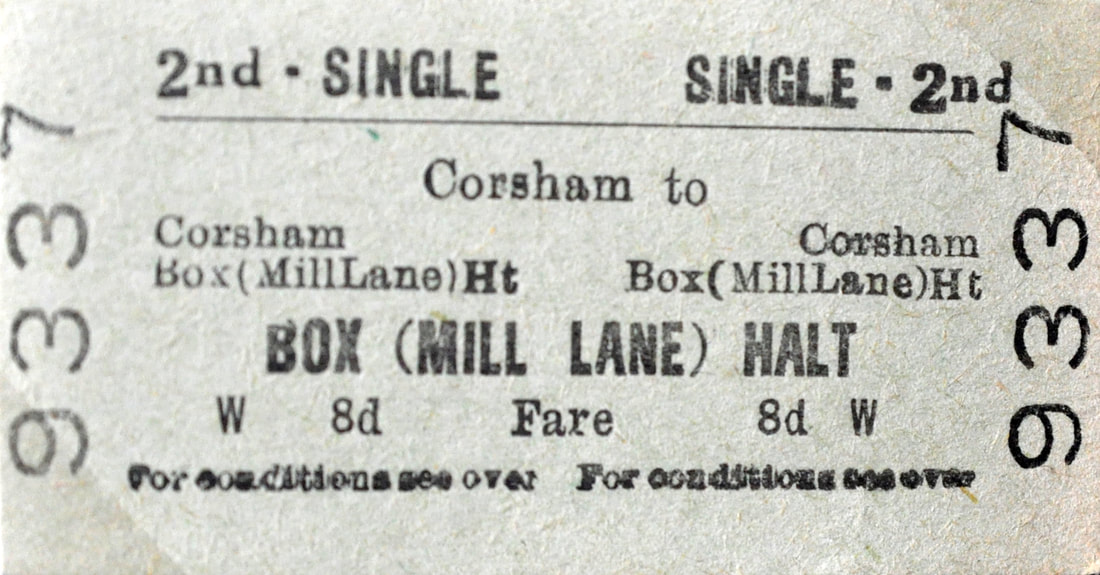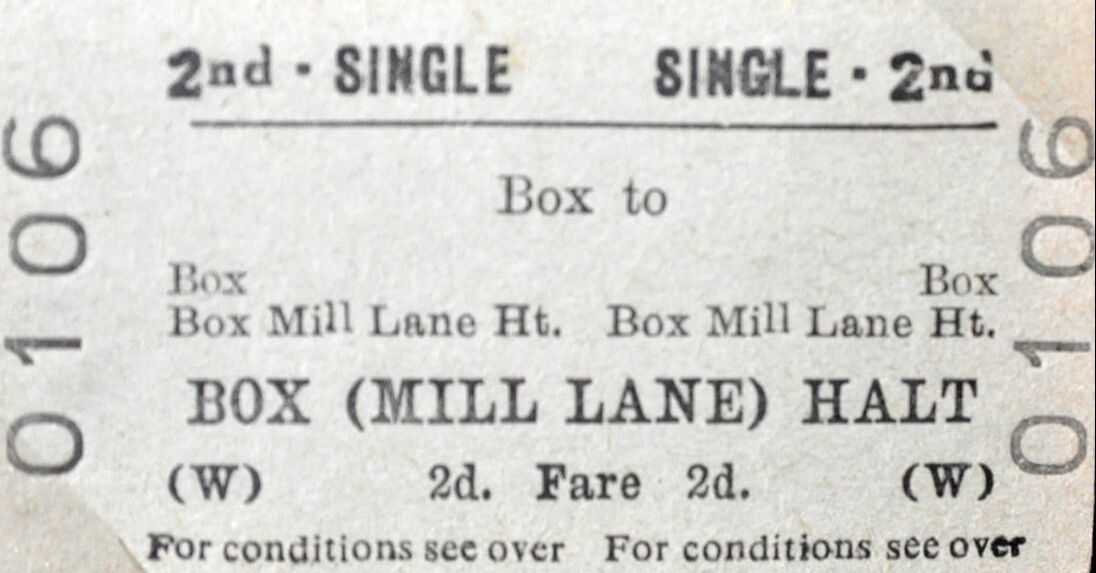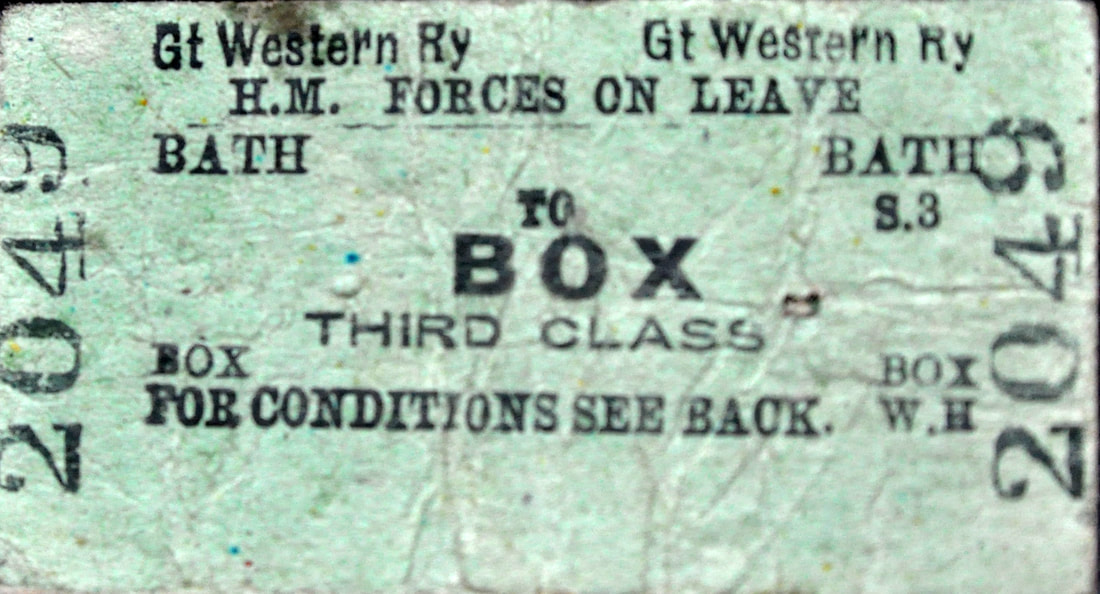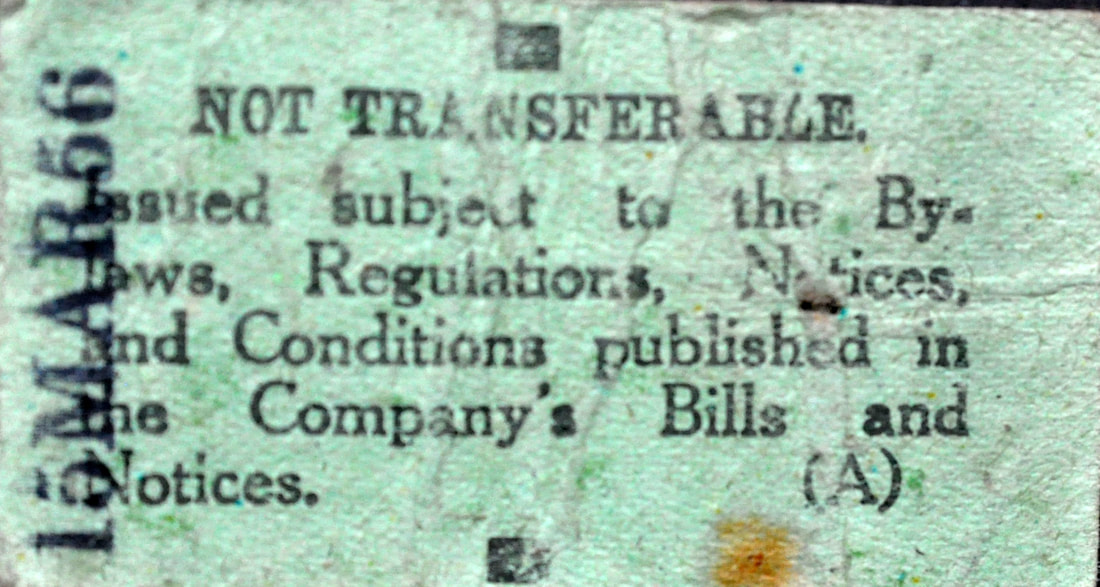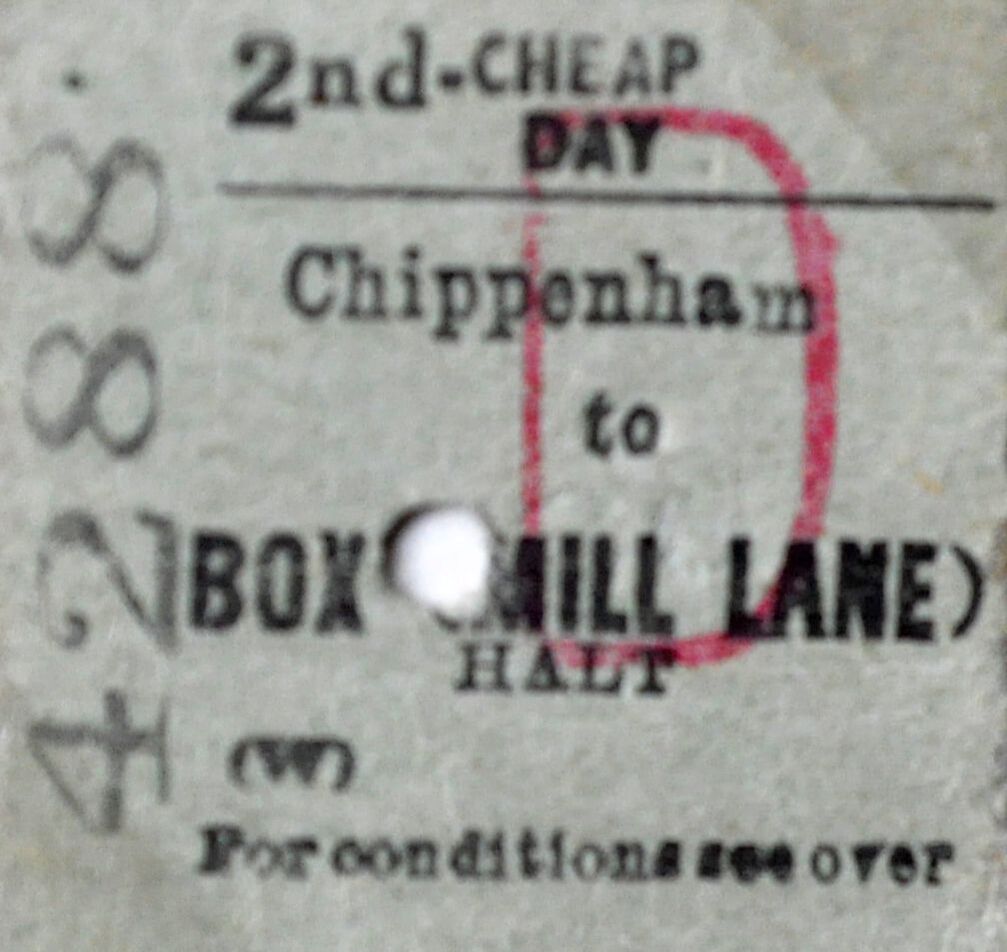Just the Ticket Robert Coles December 2020
Have you ever bought something, put the receipt in your purse or wallet and found it months afterwards, wondering why you bothered to keep it in the first place? I am sure we all have, including Robert, but he kept his receipts as part of the story of his life. They make a marvellous diary and a comment on our economic society.
Georgian Tokens
The early Georgian period didn’t use receipts partly because paper was too expensive. Instead, verbal contracts were common relying on the Georgian principle of honesty in being a gentleman. Medieval tokens were in common use as private coinage to pay employees and, in later years, they were still common in the Box quarrying trade and often exchanged for beer or goods supplied by the quarry ganger in his pub.
Georgian tokens sometimes resembled coins issued by private companies or organisations which could only be exchanged according to the supplier’s terms – for example, brewery chains issued advertising tokens which could be cashed for goods at their authorised outlets.
As the chain of financial information became more complex from order, invoice, receipt and statement, a new system was needed. In local commerce, it was the growth of manufacturing and business in local towns and villages that led to the need for a more sophisticated system of financial barter. Tokens also provided another need - allowing the acquirer to collect goods and services at a time convenient to him. In this respect, open railway tickets resembled tokens to be cashed in by the traveller whenever decided by him.
The early Georgian period didn’t use receipts partly because paper was too expensive. Instead, verbal contracts were common relying on the Georgian principle of honesty in being a gentleman. Medieval tokens were in common use as private coinage to pay employees and, in later years, they were still common in the Box quarrying trade and often exchanged for beer or goods supplied by the quarry ganger in his pub.
Georgian tokens sometimes resembled coins issued by private companies or organisations which could only be exchanged according to the supplier’s terms – for example, brewery chains issued advertising tokens which could be cashed for goods at their authorised outlets.
As the chain of financial information became more complex from order, invoice, receipt and statement, a new system was needed. In local commerce, it was the growth of manufacturing and business in local towns and villages that led to the need for a more sophisticated system of financial barter. Tokens also provided another need - allowing the acquirer to collect goods and services at a time convenient to him. In this respect, open railway tickets resembled tokens to be cashed in by the traveller whenever decided by him.
Railway Tickets
The railway companies were originators in developing a system to enable travel throughout Britain on the recognition of payment through a ticket. They wanted a system to replicate the use of paper passes on stagecoaches but needed something faster than hand-written receipts, previously used. Thomas Edmondson, a Quaker station master on the Newcastle and Carlisle line, came up with the concept of a small, pre-printed card to be used as a ticket in about 1840. It was invaluable to the railway companies because his tickets were serially numbered to prevent railway clerks from simply stealing the payment money. Edmondson patented the idea and made a fortune selling ticket machines to railways at a cost of 10 shillings a year per mile of railway. He died in 1851 but his children carried on the patent and diversified into tramway tickets. The Edmondson card ticket was a brilliant idea, so simple in concept, and it helped to spark a new system for commerce whereby most invoices and receipts are serially numbered.
Tickets have changed so much in the last fifty years. All sorts of changes have been made, often increasing the volume such as larger-sized tickets or, sometimes at the present time on the railways, the ridiculous system of maybe four tickets or more for a single journey. And the universality of cheap paper has encouraged some utilities and telephone companies to increase their receipts from a small square of paper to voluminous pages.
The railway companies were originators in developing a system to enable travel throughout Britain on the recognition of payment through a ticket. They wanted a system to replicate the use of paper passes on stagecoaches but needed something faster than hand-written receipts, previously used. Thomas Edmondson, a Quaker station master on the Newcastle and Carlisle line, came up with the concept of a small, pre-printed card to be used as a ticket in about 1840. It was invaluable to the railway companies because his tickets were serially numbered to prevent railway clerks from simply stealing the payment money. Edmondson patented the idea and made a fortune selling ticket machines to railways at a cost of 10 shillings a year per mile of railway. He died in 1851 but his children carried on the patent and diversified into tramway tickets. The Edmondson card ticket was a brilliant idea, so simple in concept, and it helped to spark a new system for commerce whereby most invoices and receipts are serially numbered.
Tickets have changed so much in the last fifty years. All sorts of changes have been made, often increasing the volume such as larger-sized tickets or, sometimes at the present time on the railways, the ridiculous system of maybe four tickets or more for a single journey. And the universality of cheap paper has encouraged some utilities and telephone companies to increase their receipts from a small square of paper to voluminous pages.
|
Most of my tickets were bought from the stations by me, except the Box Forces one (pictured above), which may have been given to me by the ticket collector. It is interesting that it dates from the mid-1950s at a time of National Service rather than warfare. After 1910 there were only two classes on GWR – First and Third. Then in 1956 Third Class was renamed Second and a special rate of Third Class offered as a discount rate. I have never bought tickets from a dealer. I can't see the point as I like each ticket to have a memory of where and when I was travelling at that time. The series I bought on honeymoon are still special to me, a record of where we were on each day. Having dates on the back is invaluable. |
Robert’s tickets are fascinating because of the social history they record and, of course, most tickets may become an anomaly shortly with our use of mobile phones instead. New technology continues to drive change, just as it did with Georgian tokens.
